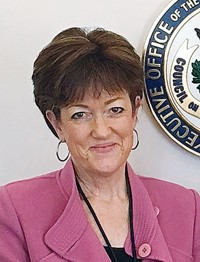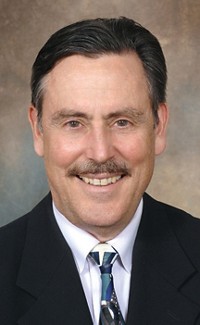Advertisement
Grab your lab coat. Let's get started
Welcome!
Welcome!
Create an account below to get 6 C&EN articles per month, receive newsletters and more - all free.
It seems this is your first time logging in online. Please enter the following information to continue.
As an ACS member you automatically get access to this site. All we need is few more details to create your reading experience.
Not you? Sign in with a different account.
Not you? Sign in with a different account.
ERROR 1
ERROR 1
ERROR 2
ERROR 2
ERROR 2
ERROR 2
ERROR 2
Password and Confirm password must match.
If you have an ACS member number, please enter it here so we can link this account to your membership. (optional)
ERROR 2
ACS values your privacy. By submitting your information, you are gaining access to C&EN and subscribing to our weekly newsletter. We use the information you provide to make your reading experience better, and we will never sell your data to third party members.
Policy
Scientists running for Congress have faced the voters. How did they do?
Three of seven candidates profiled by C&EN advanced to the Nov. 6 general election
by Rick Mullin
September 7, 2018

With the primaries over, three of the candidates profiled in a May 25 C&EN feature story on scientists running for office have advanced to the general election. Two won primary elections; the third ran unopposed. Another candidate who lost a general election seat by 125 votes is reportedly a target of Russian cyberattacks.
Here is an outcome or update for each of the seven bids for office.
Julia Biggins, head of in vivo research to combat viral and bacterial pathogens at Integrated BioTherapeutics, ran in the Democratic primary in Virginia’s 10th District. She finished 6th in a field of 6 with 2.8% of the vote. Incumbent Virginia Sen. Jennifer Wexton won with 41.9% of the vote.
Eric Ding, an epidemiologist, health care advocate, and former professor at Harvard T. H. Chan School of Public Health, ran in the Democratic primary in Pennsylvania’s 10th District. He finished third in a field of four with 17.9% of the vote. George Scott, a Lutheran pastor with a military intelligence background, won with 36.3%.
Brian Forde, an information technology specialist who served as a senior technology adviser to the Obama administration, placed fourth in a field of six in California’s 45th District with 6.0% of the vote. Attorney and law professor Katie Porter led the Democrats in the open primary with 20.3% of the vote.
Hans Keirstead, a stem cell scientist and serial biotech entrepreneur who is currently CEO of Aivita Biomedical, ran as a Democrat in the open primary for California’s 48th District. He came in third overall, placing second among Democrats by only 125 votes. The drama continues, however. According to an August 15 article in Rolling Stone magazine, the Federal Bureau of Investigation is probing cyberattacks aimed at Keirstead, one of eight Democrats who were vying to take on Rep. Dana Rohrabacher, a Republican viewed as the most pro-Russian member of Congress and an ardent supporter of President Donald J. Trump. Attorney and businessman Harley Rouda faces Rohrabacher in the general election.
Elaine Luria, a retired naval nuclear engineer, prevailed in a two-way Democratic primary in Virginia’s 2nd District, garnering 62.3% of the vote. She faces Republican incumbent Scott Taylor in November.
Lauren Underwood came out on top in a field of seven Democratic candidates in Illinois’ 14th District with 57.3% of the vote. A nurse who worked as a policy coordinator in the Department of Health & Human Services during the Obama administration, Underwood is in a tightening race against Republican incumbent Randy Hultgren.
Randy Wadkins, a chemistry professor at the University of Mississippi, ran unopposed in the Democratic primary for Mississippi’s 1st District. He is considered an extreme long shot to win against Republican incumbent Trent Kelly.
The group profiled by C&EN did not fare as well as science professionals endorsed by 314 Action, a group that advocates to elect candidates from science, technology, engineering, and mathematics (STEM) fields. According to Shaughnessy Naughton, founder and president of the organization, 314 Action endorsed candidates in 23 races involving 141 contenders. Of those candidates, 13 won their primaries. All but two are in races categorized by the Democratic Congressional Campaign Committee as “red to blue,” priority races in which Democratic candidates have a good chance of prevailing over Republican incumbents.
Advertisement
“But in politics you have to look at more than just the numbers, though that can be kind of a funny thing to be saying to scientists,” says Naughton, who is trained as a chemist. “If your reason to not run is that you might lose, then don’t run, because most people are going to lose.” What matters, she says, is that candidates with STEM backgrounds contribute to public debate on issues such as health care, where the scientific perspective is influential.
Luria told C&EN after her primary victory that her engineering and Navy background prepared her to speak with authority on a range of issues of central concern to voters in her district, including energy and defense. “They know I will approach problems with fact-based solutions,” she says.
Ford, on the other hand, said in an interview in Science that he would approach his campaign differently if he were to do it again, letting go of a too-scientific approach.
“I would have started running earlier,” he says, noting that his opponents beat him to the starting line by three or four months. “As a first-time candidate, it’s like when you’re a child, and every month of growth is massive. Being naturally cautious, a scientist or technologist might be inclined to wait and not jump in until you have everything lined up. But you need to let go of that idea and realize that you’re going to learn a lot once you start running.”
CORRECTION: This story was updated on Oct. 3, 2018, to say that Elaine Luria faces Republican incumbent Scott Taylor, not Barbara Comstock, for a congressional seat in Virginia’s 2nd District. Comstock is a Republican currently representing Virginia’s 10th District and faces Jennifer Wexton.




Join the conversation
Contact the reporter
Submit a Letter to the Editor for publication
Engage with us on Twitter